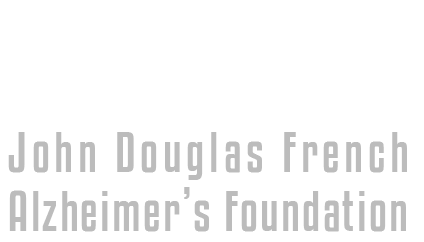Lea Grinberg, MD, PhD
Associate Professor
Department of Neurology
University of California, San Francisco
Dr. Lea Tenenholz Grinberg is a neuropathologist specializing in brain aging and associated disorders, most notably, Alzheimer’s disease. Currently, she is an Associate Professor and a John Douglas French Alzheimer’s Foundation Endowed Professor at the UCSF Memory and Aging Center, part of the leadership of the Global Brain Health Institute and Chair of the UCSF Academic Senate’s Committee of Research.
Dr. Grinberg received her medical degree from the Santa Casa Medical School in São Paulo – Brazil and residency and PhD degrees from the University of São Paulo, where her doctorate work focused on the neuropathology of frontotemporal lobar degeneration. In 2003, Dr. Grinberg was among the founders of a brain bank in São Paulo, focusing on brain aging. This brain bank which she had since developed into an extremely prolific and highly-regarded institution, helped Dr. Grinberg to prove that, contrary to what has been accepted previously, the brainstem and not the cortex, harbors the first detectable neurodegeneration in Alzheimer’s disease. Between 2007 and 2009, during her post-doc at the University of Würzburg, Germany, Dr. Grinberg acquired expertise in neuroanatomy and in the use of visual computing for digital reconstruction of brains for enabling high-scale computer-based analysis. This knowledge has been continuously utilized in multiple projects, primarily focusing on improving the interpretation of neuroimaging results based on histological validation. In 2009, she was the recipient of the UNESCO-L'Oréal Award "For Women in Science," and in 2010 she received the John Douglas French Alzheimer Foundation "Distinguished Research Scholar Award." Currently, Dr. Grinberg is the Co-Leader of the UCSF Neurodegenerative Disease Brain Bank, where she conducts neuropathological diagnosis of neurodegenerative diseases. She also directs the Human Biology Validation Core for the NIH/U54 Tau Centers Without Walls, is a principal investigator from the Tau Consortium and holds a California Medical License.
The Grinberg Lab
The Grinberg Lab at UCSF, which was established in 2009, is now home to almost 20 researchers, students and staff. The Grinberg Lab follows up on Dr. Grinberg’s initial discoveries to provide an integrated picture of brainstem vulnerability in Alzheimer’s disease (AD) and frontotemporal lobar degeneration (FTLD), including extensive studies on the neurobiological basis of sleep disturbances in these diseases aiming to provide personalized symptomatic treatment and improve the patient quality of life. The Grinberg Lab also investigates the factors influencing the clinical expression of Alzheimer’s pathology to lead to better diagnostic tools, the identification of risk factors for accelerated decline, and the therapeutic targets that minimize clinical decline in AD. The lab combines classical quantitative neuropathological techniques with advanced computer vision tools and multiplex molecular probing in postmortem human tissue and neurons derived from induced pluripotent cells.
The Grinberg’s Personal story
“I grew up in São Paulo, Brazil, in a family of medical doctors, artists and engineers. Both my paternal grandparents worked as physicians and researchers. Even at a young age, I knew I wanted to follow in their footsteps and, thinking back, they have been my first mentors. My grandmother and great-grandmother, in particular, were an inspiration as in Brazil, very few women at that time were able to become doctors. When I was a teenager, my paternal grandmother developed dementia and as I painfully witnessed her gradually lose her mental capacities, it increased my resolve to contribute to the understanding of the aging brain. Since then, I have tried to center my career around the study of dementia, empowering women, and promoting research in developing countries. I was fortunate enough to have many great mentors guiding my way with mentions to Helmut Heinsen, Bruce Miller, Wilson Jacob, Paulo Saldiva, Gyorgy Bohn, Carlos Pasqualucci and Carlos Moreira. Also, I would not be able to progress without the support of dozens of colleagues, staff members and students. My parents Norma and Sergio, and sister Tania who were always there at good and bad moments. Finally, my beloved husband, Oded has been giving me strength, support and love for over a decade, not to mention three amazing children: Adam, Mona and Abie, my dearest treasures.”

